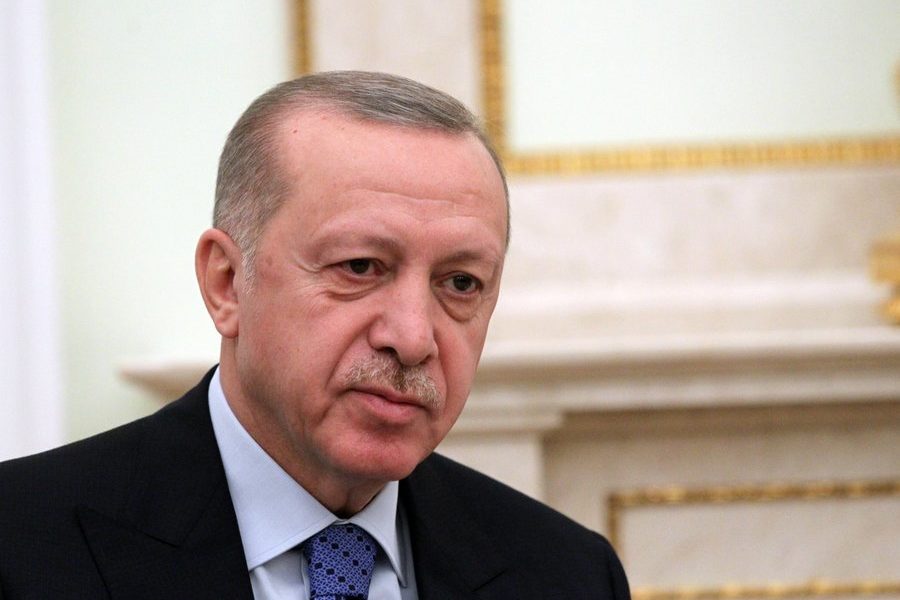The historic normalization of relations between United Arab Emirates (UAE) and Israel marks a watershed in the Middle East. Just as significant, however, has been the region’s reaction. “It is good, though painful,” as Hezbollah chief Hassan Nasrallah stated, “that the masks have fallen.” The most notable mask to fall was Turkish President Recep Tayyip Erdogan’s. His vehement opposition should remove any doubt as to whether he is a U.S. ally; Washington must now act accordingly.
For decades, the United States has encouraged Arab countries to make peace with Israel and has rewarded those that do—Egypt (1979) and Jordan (1994)—with better ties and greater economic and security assistance. Similarly, Turkey, which has had diplomatic relations with Israel since 1949, improved its standing in Washington by drawing closer to Jerusalem in the 1990s.
Now, the UAE has followed in the footsteps of these American partners.
Extremists, however, have long violently opposed such accords, including the tragic Muslim Brotherhood assassination of Egyptian President Anwar Sadat. The same extremism prevails today, animated by radical Islamist, virulent anti-American and anti-Jewish ideology; coveting Israeli territory; and/or aspirations to lead the region and Islamic world.
Thus, Arab-Israel peace agreements clarify where regional actor stand: for peace or hatred?
Those who most vociferously applauded the Israel-UAE deal—U.K., France, Greece, Jordan, Egypt, Azerbaijan, even Oman and Bahrain—have shown themselves, in various degrees, to be serious about Middle Eastern peace and constructive partners for the United States.
Conversely, those most stringent in their denouncements reveal themselves as committed to the Islamic extremism—Shia and Sunni, alike—that has fueled the last decade of sectarian bloodletting and civil strife. That Iran, Hamas, and Hezbollah—the chief violators of the region’s peace and stability, and opponents of U.S. influence—fall into this camp is unsurprising.
More concerning for the United States is the vehement response from a supposed U.S. ally—Turkish President Erdogan. “The move against Palestine is not a step that can be stomached,” he declared, while threatening to cut off relations with the UAE.
Erdogan’s denunciations confirm his place among the Middle East’s anti-Israel, anti-American, Islamic extremists and revisionists.
Raised amid Turkey’s Islamist fringe, Erdogan shares the Muslim Brotherhood’s ideology and has championed its Palestinian chapter, Hamas, as well as other terrorist groups. In the Arab Awakening, Erdogan threw his weight behind the Muslim Brotherhood in Egypt and Syria. Once Syria was engulfed in conflict, Erdogan’s intelligence service armed extremists, tolerated their use of Turkish territory, and stonewalled U.S. attempts to use Turkish bases to fight ISIS. Turkey even attacked the U.S.-backed Kurdish forces that toppled ISIS, but not before Erdogan and his officials threatened U.S. troops with an “Ottoman slap” and the possibility that “by accident, a few rockets [could] hit them.” Meanwhile, Turkey protects al-Nusra, an al-Qaeda offshoot, in Syria’s Idlib province.
Erdogan’s belligerence has extended westward, as well. He deployed Turkey’s navy to disrupt Greek-Cypriot-Israeli efforts to develop Eastern Mediterranean natural gas for export to Europe, and sent extremists from Syria to fight in the Libyan civil war.
This track record, and especially his purchase of Russian S-400 ground-to-air missiles, has made U.S. policymakers increasingly wary of Erdogan. Yet, the instinct to treat Erdogan as a trustworthy partner persists. Turkey remains a member of NATO and hosts U.S. forces. U.S. presidents have repeatedly turned to Erdogan for assistance, most recently to counter Russia and Iran.
The United States must break this old habit and embrace a new paradigm. It should recognize that Turkey is no U.S. ally, deny it special consideration, collaborate with it only when our interests align and seek to check its influence. Specifically, in Syria, the United States can re-strengthen ties with the Kurds; in Libya, it should support the UAE- and Egypt-backed Libyan National Army. The Pentagon should also reallocate some military assets from Turkey to Greece—also a NATO ally, and one that is democratic with a pro-American prime minister—station more U.S. forces in Greece, bolster Greek defenses, and support Greek claims against Turkey on behalf of its exclusive economic zone. Simultaneously, the United States must strongly support the Turkish people, expressing hope for the resumption of a U.S.-Turkish partnership.
The UAE-Israel deal not only advances U.S. interests and values, but offers a rare clarifying moment about who are America’s partners—and who aren’t, and don’t deserve to be.
Michael Makovsky, a former Pentagon official, is President and CEO of the Jewish Institute for National Security of America (JINSA).
Originally published in Newsweek

